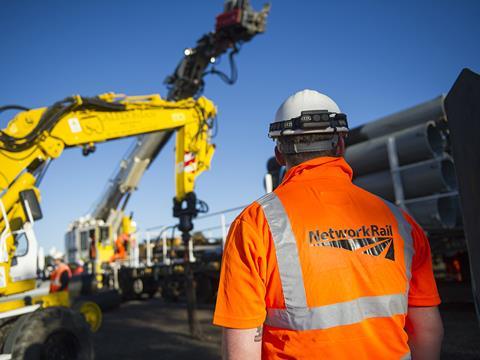
UK: More than 40 000 staff at Network Rail and train operating companies are to be balloted for strike action in what the RMT union calls ’potentially the biggest rail strike in modern history’.
RMT said Network Rail intends to cut at least 2 500 safety critical maintenance jobs as part of a £2bn reduction in spending, while TOC staff have been subject to pay freezes, threats to jobs and attacks on terms and conditions.
Rail Business UK understands that Network Rail is still discussing ideas for cost savings, and has not yet put forward any proposals or published formal consultation papers.
The RMT ballot opens April 26 and closes May 24, and a strike could begin as early as June.
’Thousands of railway workers have seen their living standards plummet and have run out of patience’, said RMT General Secretary Mick Lynch on April 20. ‘The way for trade unions to effectively take on the cost-of-living crisis is to stand up for their members at work and take industrial action when employers are not moved by the force of reasoned argument.
‘A national rail strike will bring the country to a standstill, but our members livelihoods and passenger safety are our priorities.’
| Train operating companies where RMT is balloting |
|---|
| Avanti West Coast, c2c,Chiltern Railways, CrossCountry, East Midlands Railway, Govia Thameslink Railway (including Gatwick Express), Greater Anglia, GWR, LNER, Northern, Southeastern, South Western Railway (including Island Line), TransPennine Express, West Midlands Trains. |
Responses
Responding to RMT’s announcement, Tim Shoveller, Network Rail’s Managing Director, North West & Central region, said ’our railway has been hit hard by the Covid-19 pandemic, and even as passenger numbers start to recover, we know travel habits and passenger demand have changed and the industry has to change too. We cannot keep relying on government handouts, and so we must work together with train operators and our trades unions to save millions of pounds and deliver a more efficient railway.
‘Our modernisation programme aims to build a sustainable future that delivers for passengers and creates better and safer jobs for our people. We would not consider any changes that would make the railway less safe. We are disappointed that the RMT has taken this decision and urge them again to work with us, not against us, as we build an affordable railway fit for the future.’
The Rail Delivery Group said ‘the pandemic was an unprecedented shock for the railway, with the lowest passenger numbers in over 150 years and record levels of public funding to keep it running. Our whole focus now should be securing a thriving future for rail that adapts to new travel patterns and takes no more than its fair share from taxpayers, instead of staging premature industrial action which would disrupt passengers’ lives and put the industry’s recovery at risk.
‘For the sake of our people and everyone who relies on our railway every day, we want the RMT to work with us to bring how we run our services up to date so that it is more reliable, more affordable and inspires more passengers back on board.’
Anthony Smith, Chief Executive of independent watchdog Transport Focus, said ‘it is crucial that all parties now get back around the table and resolve this matter without bringing services to a standstill.’



